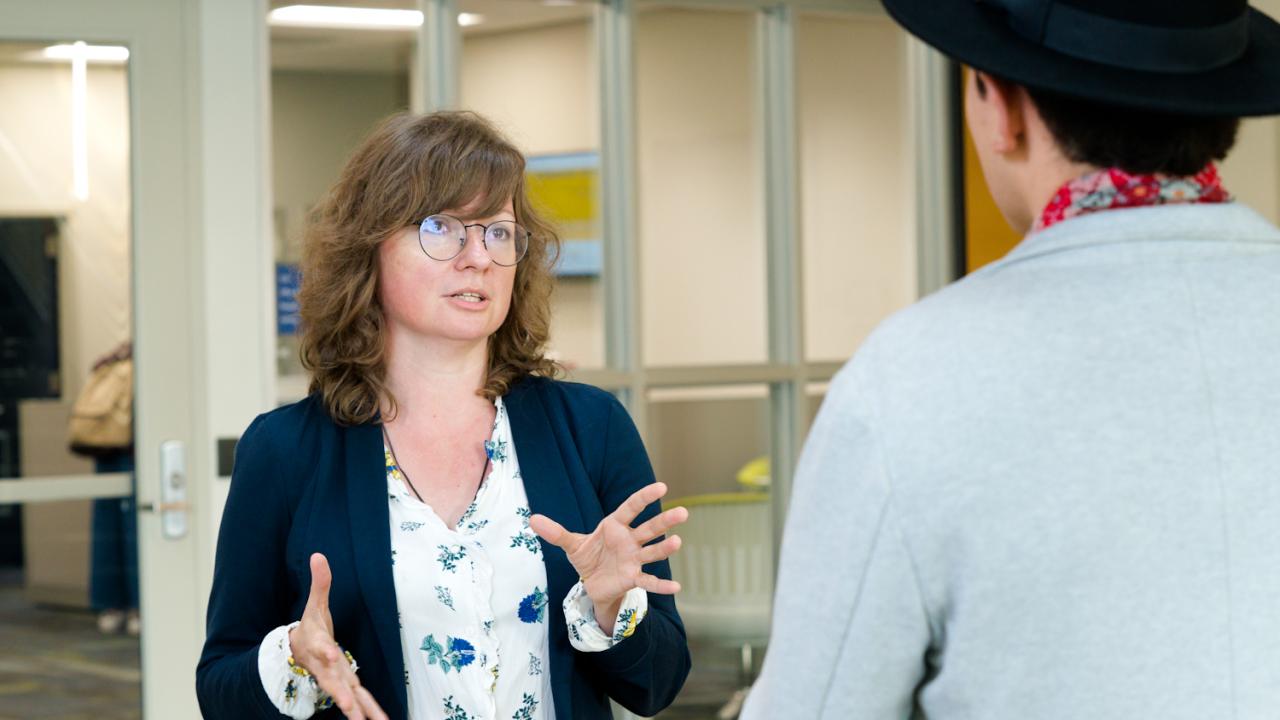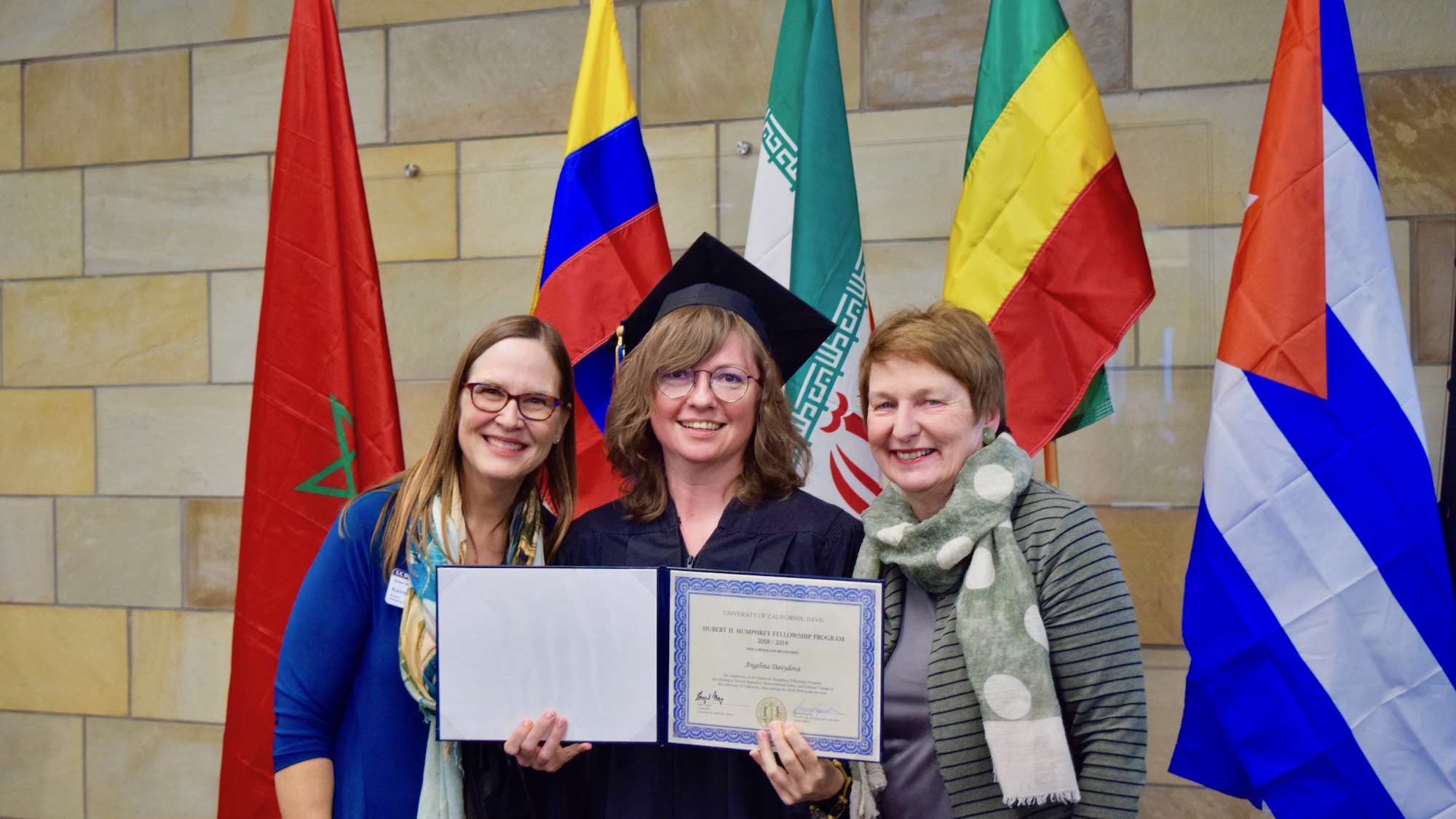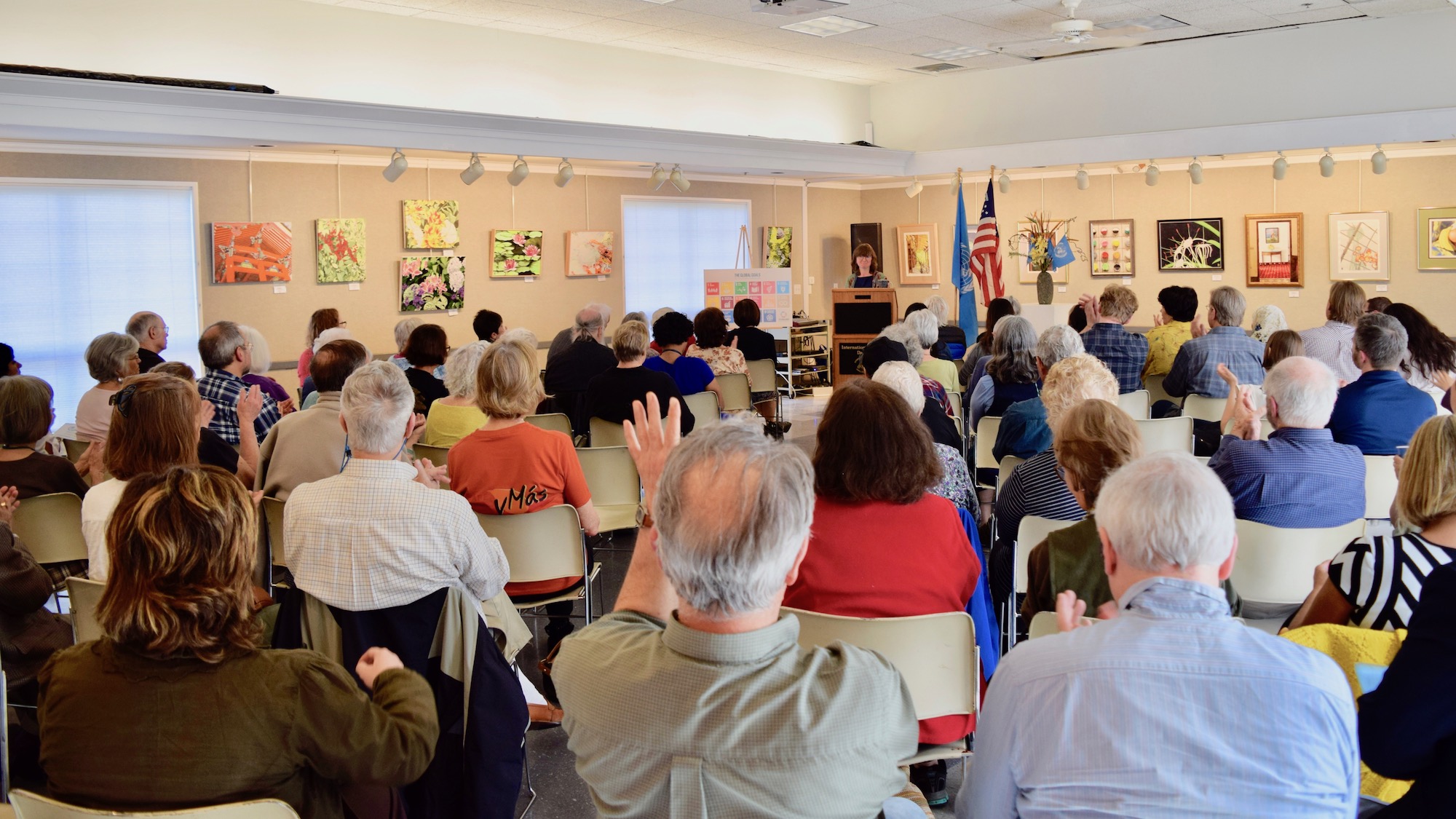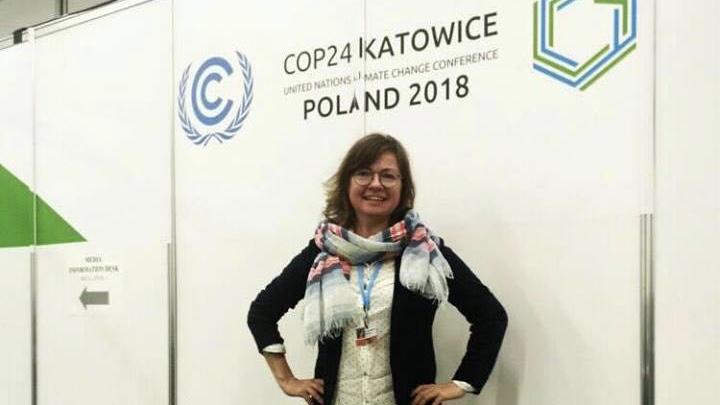
UC Davis Humphrey Fellow Paves Way for Climate Change Journalism in Russia
By Rowan O’Connell-Gates, student writer, Global Affairs
As one of the largest producers of energy in the world, Russia has long been known for its close ties to fossil fuels. In fact, Russia accounts for 14% of the world’s combined oil and gas output and is expected to remain the largest energy exporter in the world, according to British Petroleum's annual Energy Outlook.
Given this reality, UC Davis Hubert H. Humphrey Fellow and climate change journalist Angelina Davydova is working to mitigate the negative impact Russia’s energy policies have upon the climate.
“When I first started working with climate and environmental topics, they were of such little importance to the general public,” Davydova says. “But what we've seen over the past few years is amazing: young people all over Russia are plugging into these topics and showing real interest.”
This shift can be attributed in part to Russian climate change journalists such as Davydova, who are working to educate the country about the myths and reality of climate change. Davydova’s path to becoming a sought-after environmental journalist began, fittingly, with international engagement.
Davydova began her climate education in the fall of 2007 while working for the German-Russian Exchange. During her time with this NGO, Davydova was in charge of the organization’s media exchange program. Her work involved the trading of journalistic information and ideas between Germany and Russia. It was through this organization that Davydova was introduced to the United Nation (UN)’s Youth Training program, the first of many interactions with the UN.
“It was an amazing training organized by Friends of the Earth International,” says Davydova. “This is where I learned the basics of climate science and politics. I learned about what is happening in the UN, how the UN functions, and how UN documents are written.”
After her involvement with the UN's Youth Training program, Davydova followed the program to Poland in December of 2008 for her first UN climate conference. This experience confirmed Davydova’s interest in environmental climate issues and set her on the path of climate change journalism.

While Davydova’s interest in climate change has recent origins, her work as a journalist began 20 years ago at the nationally recognized Russian newspaper, Kommersant. While finishing her degree at St. Petersburg State Economic University (known then as St. Petersburg State University for Economics and Finance), Davydova took an internship position at the newspaper and instantly connected with the work and lifestyle of a journalist.
“I still remember, the editor at Kommersant sat down for a coffee with me and explained the basics of journalism and how stories should be structured,” Davydova says. “I started writing for them on a freelance basis and I fell completely in love with them. To this day it’s one of the best work environments I’ve ever been in.”
After writing for five years at Kommersant and the now defunct St. Petersburg Times, Davydova was accepted as a Journalist Fellow for the Reuters Institute in 2006.
Davydova returned to Russia in 2007 with the realization that she wanted to try something new within the field of journalism, leading her full circle to the German-Russian Exchange.
In 2009, Davydova returned to professional journalism with freelance work for multiple media outlets including Kommersant. Her re-entry into the field was notable for her unique journalism. She became a Russian media rarity: a climate change journalist.
Due to her participation in the climate change field, she became sought after by universities throughout Russia as a teacher for environmental climate journalism. Nowadays, Davydova is a part-time senior lecturer at St. Petersburg State University and the joint MA program at The Free University of Berlin. She teaches her classes in a project-based format, often collaborating with her students to produce cutting-edge climate journalism.

To date, Davydova’s work life has stabilized into three key sections. She has her university life, her journalistic presence as a freelancer for multiple Russian and international media outlets, and her continued efforts with the German-Russian Exchange that started it all.
In 2011, Davydova developed her own unit of the German-Russian Exchange known as the Office of Environmental Information, where she serves as the director.
“We do a lot of trainings for journalists across environmental and climate topics,” Davydova said. “The trainings are usually media based and designed to help prospective journalists become active climate change journalists.”

This position has allowed her to keep a sustained presence as a journalist and moderator at the annual UN Conference of Parties (COP). In December 2018, Davydova traveled to Poland for her tenth COP, where she wrote stories for Reuters on the Ukrainian renewable energy movement and continued her work as an educator for prospective climate change journalists.
With just months left in her Hubert H. Humphrey Fellowship at UC Davis, Davydova has continued her busy schedule. She has served as a lecturer at various academic institutions such as Indiana University Bloomington and the University of Michigan and has worked to understand climate policies and regulations in California so as to inform her environmental constituents back home.
“The Humphrey Fellowship has been an amazing experience, I’ve learned a lot through formal and informal ways,” Davydova said. “I’ve had the chance to give lectures and presentations and I’ve also met so many amazing people here like the other Humphrey Fellows; they are amazingly interesting, and I’ve learned so much about them and their countries.”
It has been 10 years since Davydova first began pursuing the topic of climate change issues in Russia and since then progress has been made. According to British Petroleum and Scientific American, Russia has lowered their overall emissions and made concerted efforts to refocus the forthcoming problems of boreal forest sustainability in UN talks.
Despite these positive strides, Davydova is quick to point out that these emissions changes can also be linked to Russia's recent economic downturn. As a result, Davydova feels any over exuberance for the positive steps being taken by Russia should be tempered.
“Even though there is all this growing awareness, it does not mean that Russia is doing a lot in that respect,” Davydova said. “Russia is still doing far too little, so despite the progress made, it remains part of my job to inform people that overall we are behind most other countries on this issue.”
Even so, Davydova is not discouraged by her country’s current lack of ambitious climate policy. In fact, Davydova is proud of the progress made by both herself and her journalistic peers. She sees a bright future for both Russia and the world, especially if journalists like herself continue to engage in cultural exchange through programs such as the Hubert H. Humphrey Fellowship Program.
“It is not lost on me that the Russian public is now talking about this issue of climate change. In 2009, that was not the case, it was swept under the rug,” Davydova says. “We have to keep fighting these issues one step at a time, and we cannot be afraid to do so by traveling and learning from others.”
About UC Davis Global Affairs
Global Affairs brings the world to UC Davis, welcoming more than 10,000 international students, scholars and leaders, and hosting programs that inspire global curiosity, understanding and engagement. Compelled by the valuable outcomes of thinking globally, we make transformative opportunities a reality by supporting the thousands of students and faculty studying and researching internationally—and by facilitating collaborations that tackle the world's most pressing problems through more than 150 international partnerships.
Putting our vision of a UC Davis community that engages, thrives, and leads in this interconnected world into action, Global Affairs is now in pursuit of an ambitious goal: Global Education for All.
About the Hubert H. Humphrey Program
An initiative of the U.S. State Department’s Bureau of Education and Cultural Affairs and administered by the Institute of International Education (IIE), the Hubert H. Humphrey Fellowship Program was founded in 1978 by President Jimmy Carter to honor the late senator and vice president, Hubert H. Humphrey, an advocate of international connections and understanding.